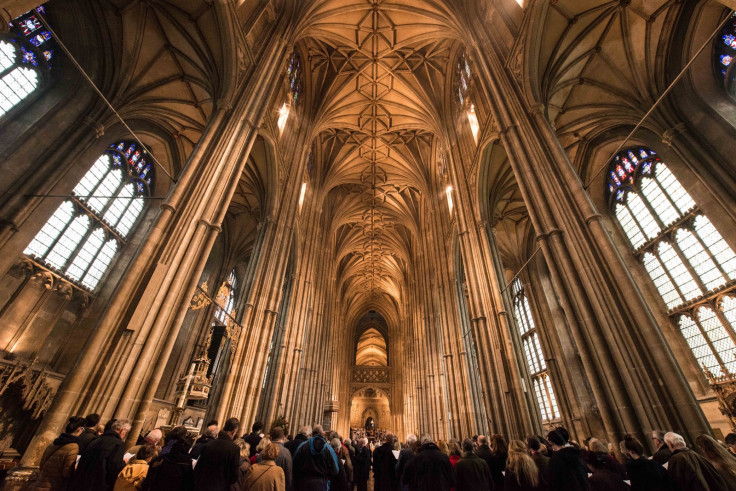How the Church of England made a historic move to accept transgender Christians
It has sent out a clear message of tolerance.
The General Synod, Church of England's governing body, made a historic move to welcome transgender people last week.
Not only will the Church now welcome trans Christians, it will affirm them too. This sends out a clear and unprecedented message of acceptance and tolerance.
The motion, which was put forward by Rev Chris Newlands and approved by 284 votes to 78, also means Bishops will now consider creating special services and liturgies that will help a person mark their gender transition.
For the transgender community, who disproportionately face discrimination and stigma, this is a momentous move.
"Many trans people have found themselves part of a church community which has - in a worst case scenario - encouraged people to 'de-transition' or return to their gender at birth, and deny what they have seen as their true self," Newlands says.
LGBTI people have consistently faced rejection in local churches - and they have been barred from taking any leadership roles within the Church, whether it be ordained clergy or a church musician.
After the Church's first-serving trans vicar Carol Stone returned to her church after gender reassignment surgery in 2000, several members of the congregation left - although the overwhelming majority stayed.
"Extreme cases show some individuals using biblical material as a licence to insult or even attack LGBT people," Newlands says.

And this abuse is something Newlands has experienced at first hand. Earlier this year, he told the Lancaster Guardian of the hate mail he received as a gay vicar.
"It's very hard to get into the mindset of someone who writes that sort of vitriolic abuse which is designed to offend and cause damage," he told the newspaper. "I'm quite secure with who I am, and in what I'm trying to do, which is to achieve equality for all people, and peace and love."
For a long time, the Church has been split when it comes to affirming trans Christians. In 2003, the House of Bishops of the Church of England agreed that two views could be held - essentially, that gender dysphoria is a reality, or that it can be seen "as a fiction".
"I wished to highlight the damage that can be done to people when they are told they are deluded, and their 'illness' is not real," Newlands said. "I sought to make a positive statement, to support people with gender dysphoria, and to enable clergy and church members to be affirmative in their welcome of trans people."
Importantly, the Church's decision sends out a wider message of tolerance that goes beyond the Christian community. And with transphobia still high in the UK, this is essential.
Last year, an FOI request by the Independent found the number of anti-trans hate crimes rose from 215 in 2011 to 583 in 2015.
"The vote was necessary to make a clear, unambiguous, and explicit statement that the Church of England welcomes, affirms, and stands ready to support trans people at every stage of their journey, in a way that affirms their whole person, and helps them into a life which enriches the community and society of which they are a part," Newlands says.
"The trans individuals and families I had been working with before the debate followed the live stream on the Church website, and I was greatly heartened to hear their sense of relief once the vote had been successful.
"Now the work begins as we begin the process of preparing resources to ensure that we really are as welcoming as we possibly can be to our trans friends."
© Copyright IBTimes 2025. All rights reserved.






















